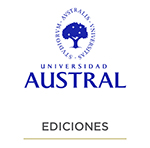Foreword
Abstract
TLegal tradition has given us few definitions of law. Even today, legal scholars generally do not like to address the question of what is law. Yet, the question of what is law has always been felt in academic debates at times of great transformation in societies and arises again with impulse in our days.
In classical Greek and Latin legal culture, law, in its ultimate root, referred to justice. The classical conception of law prevailed for many centuries in Europe, but with the formation of absolute states (and thus between the 19th and early 20th centuries), there was a shift from law understood as related to justice, to law understood as a legal system: law was subordinated to the will of the state and was thus reduced to the laws it laid down.
The contemporary legal experience marks the transition from the modernity to the post-modernity: the current juncture is characterized by the crisis of the statehood of law and the syllogistic conception of the application procedure, and, therefore, by the affirmation of a plurality of sources of law production and a new conception of the application procedure, in which the role of the interpreter is increasingly important: today more than ever, law is no longer limited to the promulgation of legal provisions, but also includes their interpretation and application.
A change of horizon is thus taking place today, as the various idols that had been worshipped by the legal mythology of modernity are gradually being shattered and law is once again claiming its autonomy from the will of the state. The impression, it seems, is that contemporary man is digging for the foundations of a new legal edifice. It could be the dawn of a new legal humanism, but historical regressions, perhaps cloaked in a pseudo-modernity, are also possible.
In the article, the author starts from the observation that the interpretation of the legal datum is generally capable of leading to several solutions, each of which is in itself technically correct, to ultimately claim that this circumstance, far from making one lose faith in the law, urges the interpreter’s responsibility towards hermeneutic solutions that are adopted in the key of a criterion of reason, and, therefore, are arguable on the basis of shared (or, at least, shareable) values.
Downloads
References
Allighieri, D. (2015). Monarchia (Ed. D. Quaglioni). Bruno Mondadori.
Amadio, A. y Checchini, G. (2020). Lezioni di diritto privato. Giappichelli.
Aristóteles. (2005). Política. Tecnos.
Aristóteles. (2009). Ética a Nicómaco. CEPC.
Bertuglia, C. y Vaio, F. (2011). Complejidad y modelos. Un nuovo quadro interpretativo per la modellizzazione nelle scienze della natura e della società. Bollati Boringhieri.
Bianchini Jesurum, D. (2014). ¿Dante giurista? Sondaggi nella Divina Commedia. Giappichelli.
Bin, R. (2009). Il sistema delle Fonti. Un’introduzione. Giappichelli.
Bobbio, N. (1994). Contributi ad un dizionario giuridico. Giappichelli.
Bocchi, G. y Ceruti, M. (2007). La sfida della complessità. Bruno Mondadori.
Cacciari, M. (2019). La mente inquieta. Saggio sull’umanesimo. Einaudi.
Cancelli, F. (1970). Diritto romano in Dante. En Enciclopedia Dantesca (Tomo II, pp. 472-479). Istituto dell’Enciclopedia Italiana Treccani.
Chaitin, G. J. (2006). Teoria algoritmica della complessità. Giappichelli.
Chiassoni, P. (1990). Analisi economica del diritto, formularismo, realismo. Annali della Facoltà di Giurisprudenza di Genova, 26, 106-145.
Ciliberto, M. (2017). Il nuovo umanesimo. Laterza.
Cotta, S. (1989). Diritto, persona, mondo umano. Giappichelli.
Cotta, S. (1991). Il diritto nell’esistenza. Linee di ontofenomenologia giuridica. Giuffrè.
D’Agostino, F. (2010a). Di che cosa parliamo, quando parliamo di giustizia. En D’Agostino, F. (Ed.), Valori giuridici fondamentali. Aracne.
D’Agostino, F. (Ed.). (2010b). Valori giuridici fondamentali. Aracne.
De Onís, F. (1934). Antología de la poesía española e hispanoamericana (1882-1932). Centro de Estudios Históricos.
Donati, P. (2013). La famiglia. Il genoma che fa vita la società. Rubbettino.
Errazuriz, C. J. (1986). La teoría pura del derecho de Hans Kelsen: visión crítica. EUNSA.
Favaro, S. (2011). La teoria della complessità sociale e il postmoderno nel diritto. Un esempio paradigmatico: la teoria della rappresentanza di Salvatore Pugliatti. Rivista italiana di scienze della comunicazione, III(2), 4-23.
Ferrajoli, L. (1989). Diritto e ragione. Teoria del garantismo penale. Laterza.
Gandolfi, S. (2009). Formicai, imperi, cervelli. Conoscere la complessità. Viaggio tra le scienze. Bruno Mondadori.
Gell-Mann, M. (1996). Il quark e il giaguaro. Avventure nel semplice e nel complesso. SAGGI.
Grossi, P. (2014). Sulla odierna fattualità del diritto. Giustizia Civile: revista giuridica trimestrale, (1), 11-25.
Grossi, P. (2017). L’invenzione del diritto. Laterza.
Grossi, P. (2019). L’Europa del diritto. Laterza.
Hart, H. (2002). Il concetto di diritto. Einaudi.
Juan Pablo II. (1991). Centesimus annus. https://www.vatican.va/content/john-paul-ii/es/encyclicals/documents/hf_jp-ii_enc_01051991_centesimus-annus.html.
Juan Pablo II. (1995). Evangelium vitae. https://www.vatican.va/content/john-paul-ii/es/encyclicals/documents/hf_jp-ii_enc_25031995_evangelium-vitae.html.
Kant, I. (1790). Metafísica de las Costumbres.
Kelsen, H. (1965). Diritto e giustizia. Einaudi.
Kelsen, H. (1966). La dottrina pura del diritto. Einaudi.
Le Scienze. (2005). Dai Neuroni Alla Coscienza. L’architettura del cervello, i misteri della mente.
Mackie, J, L. (2001). Etica: inventare il giusto e l’ingiusto. Giappichelli Editore.
Meneghelli, R. (1964). Il problema dell’effettività nella teoria della validità giuridica. CEDAM.
Mengoni, L. (1985). Diritto e valori. Il Mulino.
Penrose, R. (1992). La mente nuova dell’imperatore. La mente, i computer e le leggi della fisica. Bur Rizzoli.
Perlingieri, P. (1999). Valori normativi e loro gerarchia. Una precisazione dovuta a Natalino Irti. Rassegna di diritto civile, (4), 787-823.
Picozza, E., Capraro, L., Cuzzocrea, V. y Terracina, D. (2011). Neurodiritto. Una introducción. Giappichelli.
Piovani, P. (1953). Il significato del principio di effettività. Giuffrè.
Platón. (1991). Tutti gli scritti. Giovanni Reale.
Rhonheimer, M. (1995). Derechos fundamentales, derecho moral y defensa jurídica de la vida en el Estado constitucional democrático. Annales theologici, (9).
Rhonheimer, M. (1997). La filosofia politica di Thomas Hobbes. Coerenza e contraddizioni di un paradigma. Armando Editore.
Romano, A. (Ed.). L’ultimo Santi Romano. Giuffrè.
Romano, S. ([1918] 1946). L’ordinamento giuridico. Sansoni.Ross, A. (1965). Diritto e giustizia. Einaudi.
San Agustín. (1993). De libero arbitrio. Tomás de Aquino, Suma Teológica. B.A.C.
Scalisi, V. (2002). Prefacio. En Scienza e insegnamento del diritto civile in Italia. Convegno di studi in onore del prof. Angelo Falzea (p. xxi y ss.). Giuffrè.
Senzasono, L. (1996). Heráclito y el derecho. Gerión. Revista de Historia Antigua, (14), 53-75.
Spaziante, A. (2009). Conoscere la complessità. Bruno Mondadori.
Taruffo, M. (1999). Motivación del juicio civil (control de). En Enciclopedia del diritto, Aggiornamento (Tomo III, pp. 772 y ss.). DeAgostini.
Tomás de Aquino. (1993). Suma Teológica. B.A.C.
Von Bertalanffy, L. y Bellone, E. (2004). Teoria generale dei sistemi. Bruno Mondadori.
Copyright (c) 2023 Pasquale Gianniti

This work is licensed under a Creative Commons Attribution-NonCommercial-NoDerivatives 4.0 International License.
This license allows the copy, distribution, exhibition and representation of the work provided authorship is acknowledged and the work is properly quoted. Commercial use of the original work or the generation of derived works are not allowed.
The authors hereby guarantee the right to the first publication of the work to the Revista Jurídica Austral.
















































